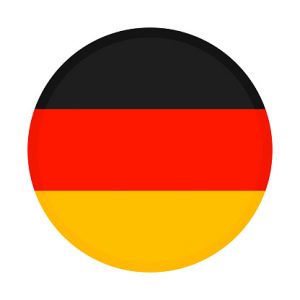Small is not beautiful – not in business. How can you drive your territorial expansion into the DACH countries?
DACH is an area of expansion that should not go amiss. But like any change, this expansion comes with some caveats.
To succeed with your expansion to the DACH countries you should look closely into two connected aspects: a) culture and b) organisational structure.
THE BIG PICTURE
Germany on its own is the biggest European economy with 83 million inhabitants, followed by Austria (9 million) and Switzerland (8.5 million). With respect to GDP per capita, the Swiss are by far the richest at $85k, second – surprisingly – Austrians with $48k and third the Germans with $45k per capita. All in all, a region with 100 million people producing a total GDP of over $5.5 trillion (yes, $5,500,000,000,000). For these facts, it is no wonder that several outside companies contemplate how to get a slice of the DACH cake.
(Note: DACH comes from the car country codes… thankfully it doesn’t come from today’s internet server extensions as it would be an unpronounceable “DEATCH”).
The culture is moulded by the language which is German in this case (Apart from 3 million French and Italian speaking Swiss, written German unites all three nations). In the spoken form, however, we could paraphrase Winston Churchill by contending that, “these three countries are divided by a common language.” Interestingly, the different dialects reflect the different mentalities of the 3 DACH nations. In my opinion, understanding this ‘cultural code’ specific for each country is the essential key to succeeding in DACH expansion.
YOUR FIRST DEAL
Let’s have an example. When trying to land your first deal in the DACH countries you will need:
- In Germany: a reference first (yes, a contradiction per se for the first deal ever).
- In Switzerland: a high-quality product, ideally Swiss made (almost a contradiction per se).
- In Austria: a recommendation ideally from a friend who’s the decision-maker (uff, kind of easier)
THE CULTURAL DIFFERENCES
 Over the years, almost 50% of the German GDP is done by family-run businesses. Some of them are over 100 years old. Many of them are hidden champions, i.e., companies considered to be world leaders in B2B products. Germany has more than 1,300 of these hidden champions – versus 370 in the US or 67 in the UK. Out of these 1,300 German companies, 400 are family held. Their success is based on mutual trust and references, ideally ‘made in Germany’. Therefore, do not be surprised if the first question of an interested prospect in this $83-million-market says, “Who in Germany is already using it?”
Over the years, almost 50% of the German GDP is done by family-run businesses. Some of them are over 100 years old. Many of them are hidden champions, i.e., companies considered to be world leaders in B2B products. Germany has more than 1,300 of these hidden champions – versus 370 in the US or 67 in the UK. Out of these 1,300 German companies, 400 are family held. Their success is based on mutual trust and references, ideally ‘made in Germany’. Therefore, do not be surprised if the first question of an interested prospect in this $83-million-market says, “Who in Germany is already using it?”
 The Swiss love references as well, but of a higher quality. Their own success, irrespectively, if achieved in the watch industry, pharmaceuticals, or banking teaches them that quality comes first over a hasty decision. A good message is, ‘if you can prove the quality then the pricing is less important.’ By not being a part of the EU, the Swiss support local production in many ways. So, if you would offer, for example, a cloud solution for banking, your business would be doomed to fail unless you made sure the data is stored exclusively in Switzerland.
The Swiss love references as well, but of a higher quality. Their own success, irrespectively, if achieved in the watch industry, pharmaceuticals, or banking teaches them that quality comes first over a hasty decision. A good message is, ‘if you can prove the quality then the pricing is less important.’ By not being a part of the EU, the Swiss support local production in many ways. So, if you would offer, for example, a cloud solution for banking, your business would be doomed to fail unless you made sure the data is stored exclusively in Switzerland.
![]() The wealth of Austria would not have been created if the locally produced or imported products did not have such high quality. In Austria, the quality check is done much more through trusted relationships. Living in Austria myself and knowing all 3 countries well from a business point of view, I contend that, in Austria, a friend’s word weighs more than in the other DACH countries. There’s even a joke, spread by the Austrians themselves: It is more important whom you know than what you know. A good message if you establish friendly terms with your customers in Austria… they give you a second chance to fix things.
The wealth of Austria would not have been created if the locally produced or imported products did not have such high quality. In Austria, the quality check is done much more through trusted relationships. Living in Austria myself and knowing all 3 countries well from a business point of view, I contend that, in Austria, a friend’s word weighs more than in the other DACH countries. There’s even a joke, spread by the Austrians themselves: It is more important whom you know than what you know. A good message if you establish friendly terms with your customers in Austria… they give you a second chance to fix things.
ORG STRUCTURE
Having covered the cultural issues, let’s move to the organisational structure of a possible expansion. Whatever business you are in, sooner or later you will need local DACH representation. Google, LinkedIn, Facebook, etc are proof that even fully globalised internet services need local offices in the DACH countries to be successful. The question is, should your own subsidiary, or a partner organisation do this change? The answer is: It depends! It’s more about the costs, risks, and gains with your subsidiary, versus a partner firm. Only after a thorough analysis of your business type, financial situation, and other aspects, can you give an exact answer.
Even if you decide to run your own subsidiary, then some local people should be employed. The above cultural reasons justify this. Both Austria and Switzerland have a common habit when foreign companies start their expansion to the DACH countries in Germany. Simply because of the potential of this single market.
IN CONCLUSION
An expansion into the DACH countries is a strategic decision that bears significant costs. A consulting service can help you make the right decision, save unnecessary costs, and produce faster results. For the facts stated above, there is not one single silver bullet. But deeper knowledge, wherever you get it from, of this whole ‘homogenously heterogeneous’ DACH market can help you succeed without too much stumbling.
To talk to us more on territorial expansion, please get in touch by emailing info@sbrconsulting.com or call us on +44 (0) 207 653 3740.
You can sign up to receive regular updates and join over 4,000 others who enjoy access to our unique research insights, expert guidance, and advice.